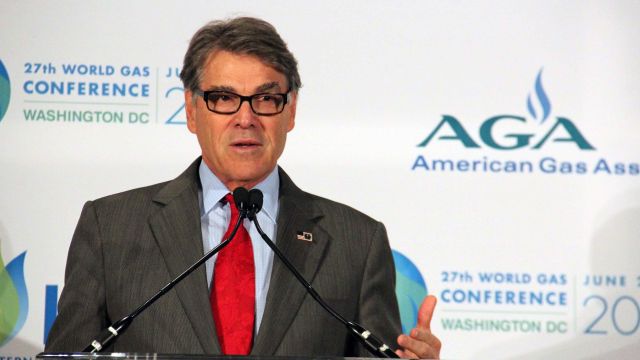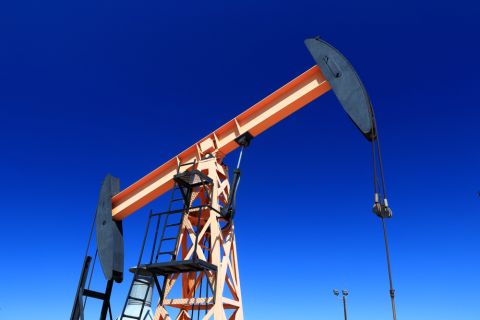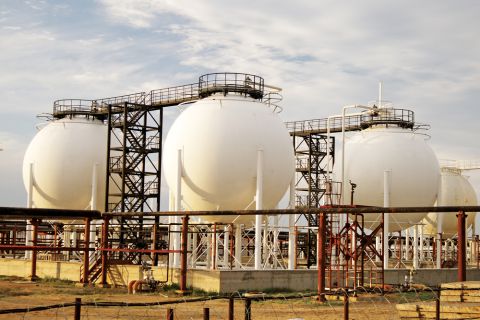
Energy Secretary Rick Perry, speaking at the World Gas Conference in 2018, has suggested that Congress consider shrinking the Strategic Petroleum Reserve. (Source: Hart Energy)
WASHINGTON—U.S. Energy Secretary Rick Perry said on April 2 that Congress should consider whether to shrink the government’s emergency oil reserve as the boom in domestic oil production has cut reliance on petroleum imports.
The Strategic Petroleum Reserve (SPR), which stores crude oil in a series of salt caverns at heavily guarded sites on the Texas and Louisiana coasts, was authorized by Congress after the Arab oil embargo of the 1970s sparked a U.S. fuel crisis.
It has been tapped by presidents during Hurricane Katrina in 2005 and conflicts in oil-producing countries. Most recently, it was tapped by President Barack Obama in June 2011 in coordination with partners in the International Energy Agency (IEA) responding to supply disruptions in Libya and other countries.
The SPR currently holds 649.1 million barrels of oil, far more than required under agreements with the IEA.
Perry, noting that the United States was now the globe’s largest oil and gas producer, said the world had changed since the reserve was created and that Congress should debate the proper size of the SPR.
“Do we need that big of a reserve, particularly with the growth of the pipeline infrastructure we have and the growth in that infrastructure that’s going to occur over the next decade?” Perry said during a Senate hearing. Perry suggested the bigger network of pipelines could ease the transfer of crude from oilfields to consumers.
An appropriate topic for Congress to debate is whether the government should rent part of the reserve to the private sector for storage, Perry said.
Over the past several years, Congress has authorized sales of nearly 290 million barrels to fund SPR improvements, the federal budget and a drug program. The sales, some of which have occurred, will reduce the reserve’s size to about 410 million barrels by the end of 2027.
Last month, the Energy Department authorized a sale of up to 6 million barrels mandated by law to improve the SPR. Metal pipelines and other SPR infrastructure are constantly exposed to moist, salty air.
Recommended Reading
For Sale, Again: Oily Northern Midland’s HighPeak Energy
2024-03-08 - The E&P is looking to hitch a ride on heated, renewed Permian Basin M&A.
To Dawson: EOG, SM Energy, More Aim to Push Midland Heat Map North
2024-02-22 - SM Energy joined Birch Operations, EOG Resources and Callon Petroleum in applying the newest D&C intel to areas north of Midland and Martin counties.
Chevron Hunts Upside for Oil Recovery, D&C Savings with Permian Pilots
2024-02-06 - New techniques and technologies being piloted by Chevron in the Permian Basin are improving drilling and completed cycle times. Executives at the California-based major hope to eventually improve overall resource recovery from its shale portfolio.
CEO: Continental Adds Midland Basin Acreage, Explores Woodford, Barnett
2024-04-11 - Continental Resources is adding leases in Midland and Ector counties, Texas, as the private E&P hunts for drilling locations to explore. Continental is also testing deeper Barnett and Woodford intervals across its Permian footprint, CEO Doug Lawler said in an exclusive interview.
Gibson, SOGDC to Develop Oil, Gas Facilities at Industrial Park in Malaysia
2024-02-14 - Sabah Oil & Gas Development Corp. says its collaboration with Gibson Shipbrokers will unlock energy availability for domestic and international markets.





